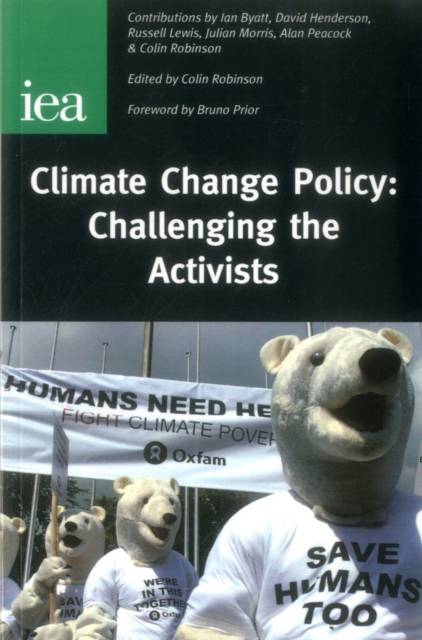
Door een staking bij bpost kan je online bestelling op dit moment iets langer onderweg zijn dan voorzien. Dringend iets nodig? Onze winkels ontvangen jou met open armen!
- Afhalen na 1 uur in een winkel met voorraad
- Gratis thuislevering in België vanaf € 30
- Ruim aanbod met 7 miljoen producten
Door een staking bij bpost kan je online bestelling op dit moment iets langer onderweg zijn dan voorzien. Dringend iets nodig? Onze winkels ontvangen jou met open armen!
- Afhalen na 1 uur in een winkel met voorraad
- Gratis thuislevering in België vanaf € 30
- Ruim aanbod met 7 miljoen producten
Zoeken
€ 13,95
+ 27 punten
Omschrijving
There is currently a consensus amongst the political establishment--and amongst the intellectual communities that feed into it--that detailed and wide-ranging government intervention is necessary to combat the effects of climate change and this monograph challenges that consensus. With contributions from Ian Byatt, David Henderson, Russel Lewis, Julian Morris, and Alan Peacock, the book looks in detail at a number of the underlying assumptions and proposals of the policy activists and finds that there is enormous uncertainty relating both to the economics and to the science of climate change. Given the uncertainty, and the historic failure of central planning to do anything other than undermine economic welfare, the book argues that it is prudent to proceed with caution. It purports that the flexibility of the market economy will deal better than central planning with any problems arising from man-made climate change, and the wide ranging array of regulations, taxes, subsidies, and artificially created incentives proposed by climate change activists should be rejected.
Specificaties
Betrokkenen
- Auteur(s):
- Uitgeverij:
Inhoud
- Aantal bladzijden:
- 170
- Taal:
- Engels
Eigenschappen
- Productcode (EAN):
- 9780255365956
- Verschijningsdatum:
- 1/09/2008
- Uitvoering:
- Paperback
- Formaat:
- Trade paperback (VS)
- Afmetingen:
- 130 mm x 196 mm
- Gewicht:
- 226 g

Alleen bij Standaard Boekhandel
+ 27 punten op je klantenkaart van Standaard Boekhandel
Beoordelingen
We publiceren alleen reviews die voldoen aan de voorwaarden voor reviews. Bekijk onze voorwaarden voor reviews.











